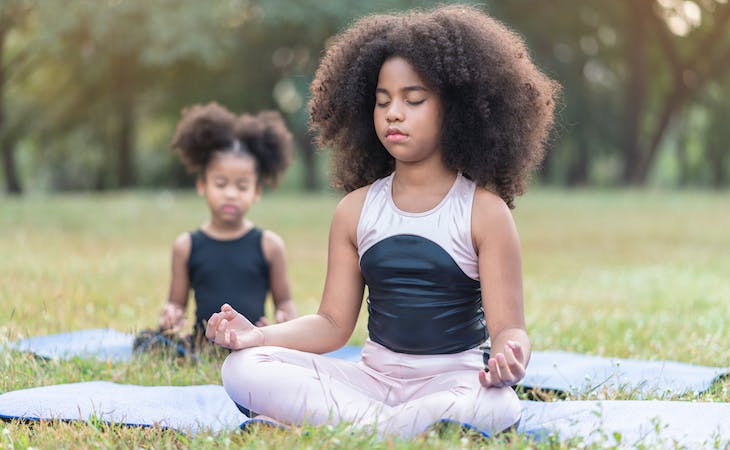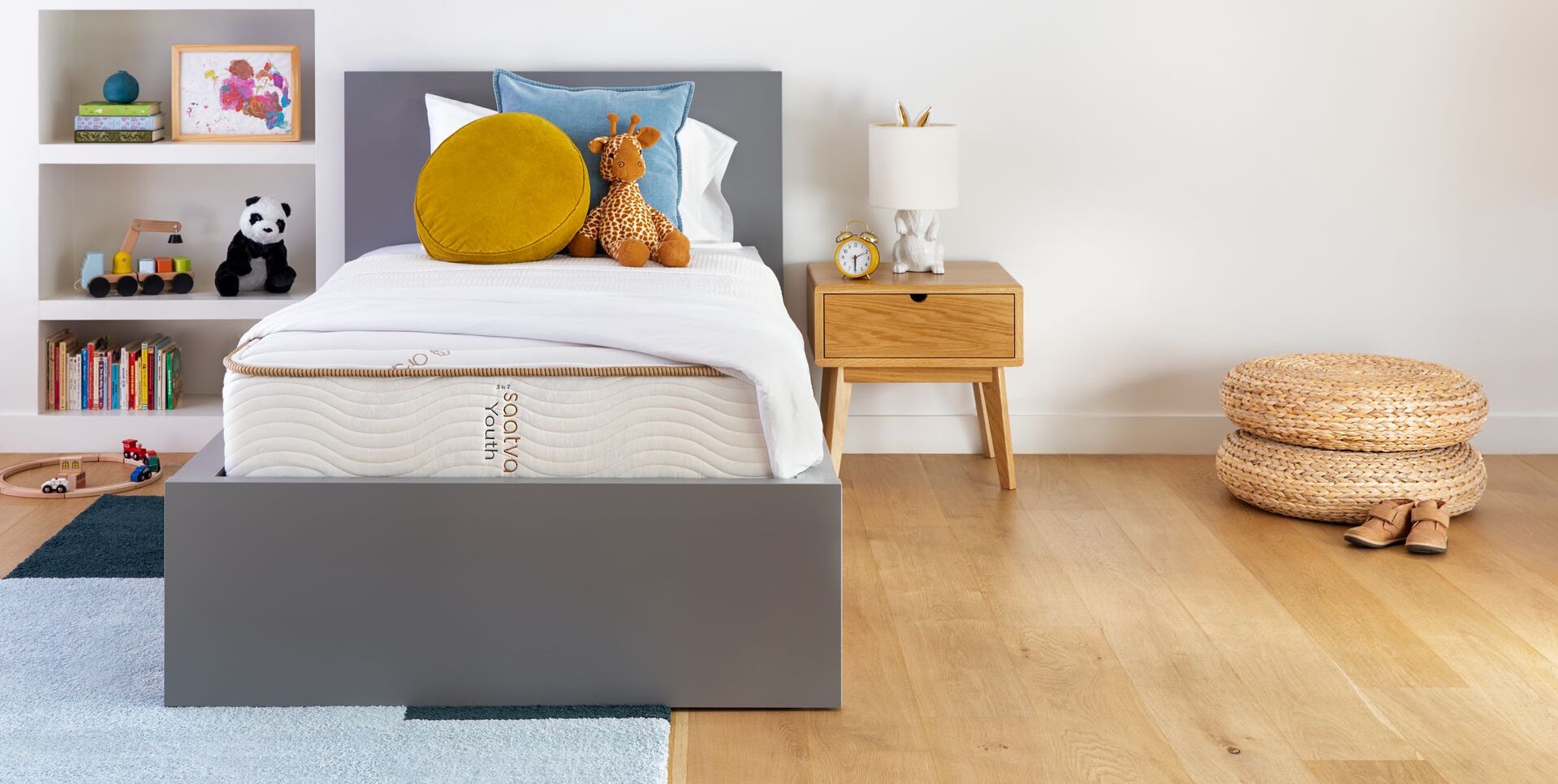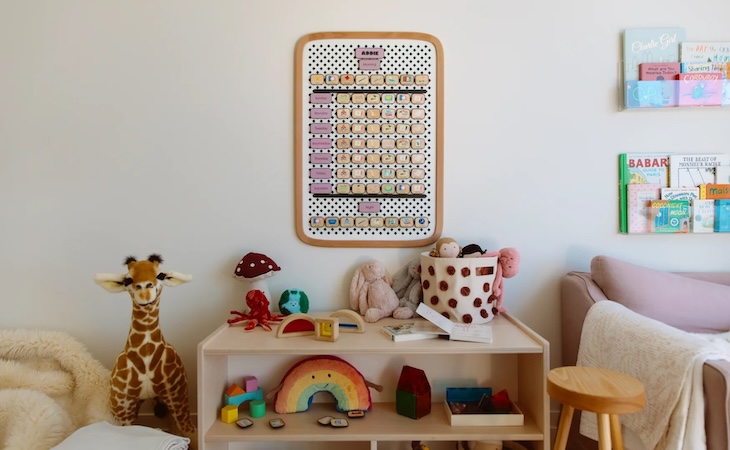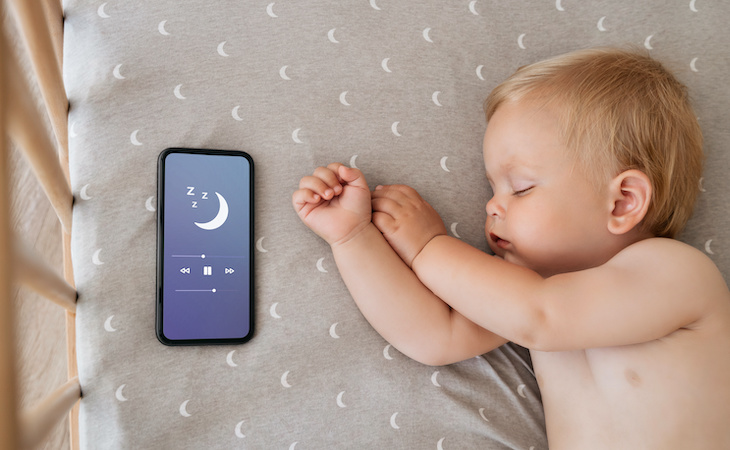Insomnia strikes millions of people each night—and kids aren’t immune from its reach. According to a September 2021 report from the Centers for Disease Control and Prevention, 35% of children aren’t getting the sleep they need.
One way to help ease your child’s insomnia and get their sleep routine back on track? Mindfulness meditation. Yep, meditation is an all-natural and effective method that can help school-aged kids 4 and older regain precious sleep.
Here’s what you need to know about the benefits of meditation for children, how to incorporate meditation into your child’s bedtime routine, and other things you can do to help your kid relax so they can get better sleep.
What causes insomnia in children?
Insomnia in kids happens for many reasons.
One is consuming too many sugary drinks, candy, or caffeine throughout the day, which can contribute to an inability to calm down at bedtime.
Another is exposure to devices that emit blue light, such as cellphones, tablets, and even LED televisions. Blue light exposure reduces the body’s melatonin production, the hormone needed to induce sleep.
Some children also develop a sleep-onset association (also known as a sleep crutch) that involves having a parent nearby to fall asleep, says Lynelle Schneeberg, PsyD, pediatric sleep psychologist and author of Become Your Child’s Sleep Coach: The Bedtime Doctor’s 5-Step Guide, Ages 3-10. If this crutch isn’t available at bedtime—or after they wake at night—they have a hard time getting to sleep (or back to sleep).
Finally, some kids may be experiencing anxiety around current events, and that can impact their ability to snooze.
The effects of sleep deprivation in children
While the sleep needs of children vary by age, the effects of long-term sleep deprivation remain the same: It can impair concentration and stunt emotional growth and development.
What are the benefits of meditation for kids?
You might already know about meditation and have used this powerful technique to calm your mind and improve your sleep. It turns out it can help children too.
For kids, “mindfulness is really good for establishing a healthy bedroom routine and sleep time routine,” says Brittany Ferri, PhD, licensed occupational therapist and author of Social & Motor Skills Curriculum for Kids.
Research shows mindfulness meditation can help children sleep. For a study published in the Journal of Clinical Sleep Medicine, the researchers enrolled kids in a meditation program. Those who followed the meditation program gained an average of 74 minutes of total sleep, with 24 minutes spent in rapid eye movement (REM) sleep over the two-year study period.
For the kids in the study, incorporating a mindfulness meditation program—and yoga—helped improve general overall behavior and wellbeing while providing a valuable tool to help them sleep better.
On the other hand, children who didn’t participate in the meditation curriculum lost 64 minutes of sleep per night, with no changes in REM sleep.
How can you help your child start a meditation practice?
Now that you know how effective meditation is in helping kiddos sleep better, here are a few tips you can easily incorporate into your child’s bedtime routine.
Listen to relaxing songs
According to Ferri, parents can practice meditation with kids is by “identifying a song that really helps them calm down and brings them joy and relaxation and then using that song or another stimulus to serve as the start of a mindfulness routine.”
So what’s your child’s favorite song? Use it to help them relax and unwind at bedtime. We also put together a list of the best sleep music for kids to give you some ideas to get started. (Here are easy ways to meditate in bed.)
Try body awareness exercises
Muscle relaxation techniques are effective for identifying anxiety. “I like to do some body awareness check-ins,” says Ferri. “If their legs are super-tense or their stomach hurts, then that might be something that gets in the way of them going to sleep.”
Body scans are easy to do. Begin by tensing one part of the body for a few seconds, then release the tension. With that release often comes a release in anxiety and pent-up emotions. Here’s an excellent primer on mindfulness body scans for kids.
How else can you improve your child’s sleep?
Mindfulness meditation isn’t the only relaxation tool you can use to help your kiddos sleep better. Try the two techniques below to help alleviate anxiety that could be contributing to your child’s sleep troubles.
Create a bedtime basket
You can make a “bedtime basket” for your child. This basket would have some items your child can use until they feel drowsy enough to fall asleep. Books, drawing pads, puzzles, and so on make great basket items.
In addition to the bedtime basket, “I like for a child to have a reading light that he or she can turn on and off independently from their bed,” says Schneeberg. Having a light and a basket promotes independent sleep skills which are vital for good sleep hygiene in school-aged children.
“A child will begin to associate the bedtime basket with drowsiness and sleep,” notes Schneeberg. “Parents can read to the child for a designated amount of time, and once that time expires, the child uses the items in their sleep basket until they fall asleep on their own.”
Bonus: This bedtime basket is transportable, so it can be used at sleepovers and on vacation too.
Set aside worry time
Like adults, kids have their own worries—and sometimes these thoughts can seriously interfere with sleep. To combat this, Schneeberg suggests parents use the “worry time technique.”
This technique involves having your child write down their worries on a piece of paper. The paper is then placed into a worry jar. “The next day, or at a certain time every day, parents would have a “worry time” or thinking time to sit with the child and pull these worries out of the jar,” explains Schneeberg.
The idea is that focusing on your worries at a certain time during the day can help relieve anxiety and stress in the long run. This technique also helps keep the bed from being associated with worries and anxiety.
The bottom line: A good night’s sleep is essential for your child’s ability to focus in school and stress less during the day. Practicing meditation and other relaxation techniques is a terrific way to help kids get the quality sleep needed for healthy development.
For more advice on improving your kid’s sleep, we asked Schneeberg for her best tips on helping children get better sleep.





